The Soil-Plant Relations Lab has been instrumented with state-of-the-art equipment for the quantification and analysis of black C in soils, as well as for measuring soil organic matter (SOM) stability, and microbial community structure and function. This equipment includes Inductively Coupled Plasma – Optical Emission Spectroscopy (ICP-OES) for quantification of micronutrients, High Pressure Liquid Chromatography (HPLC) for quantification of molecular makers of black carbon, Simultaneous Thermal Analyzer (STA) for quantification of SOM stability, and Gas (GC-FID) for quantification of lipids, sugars and organic acids in root exudates.
Our Space
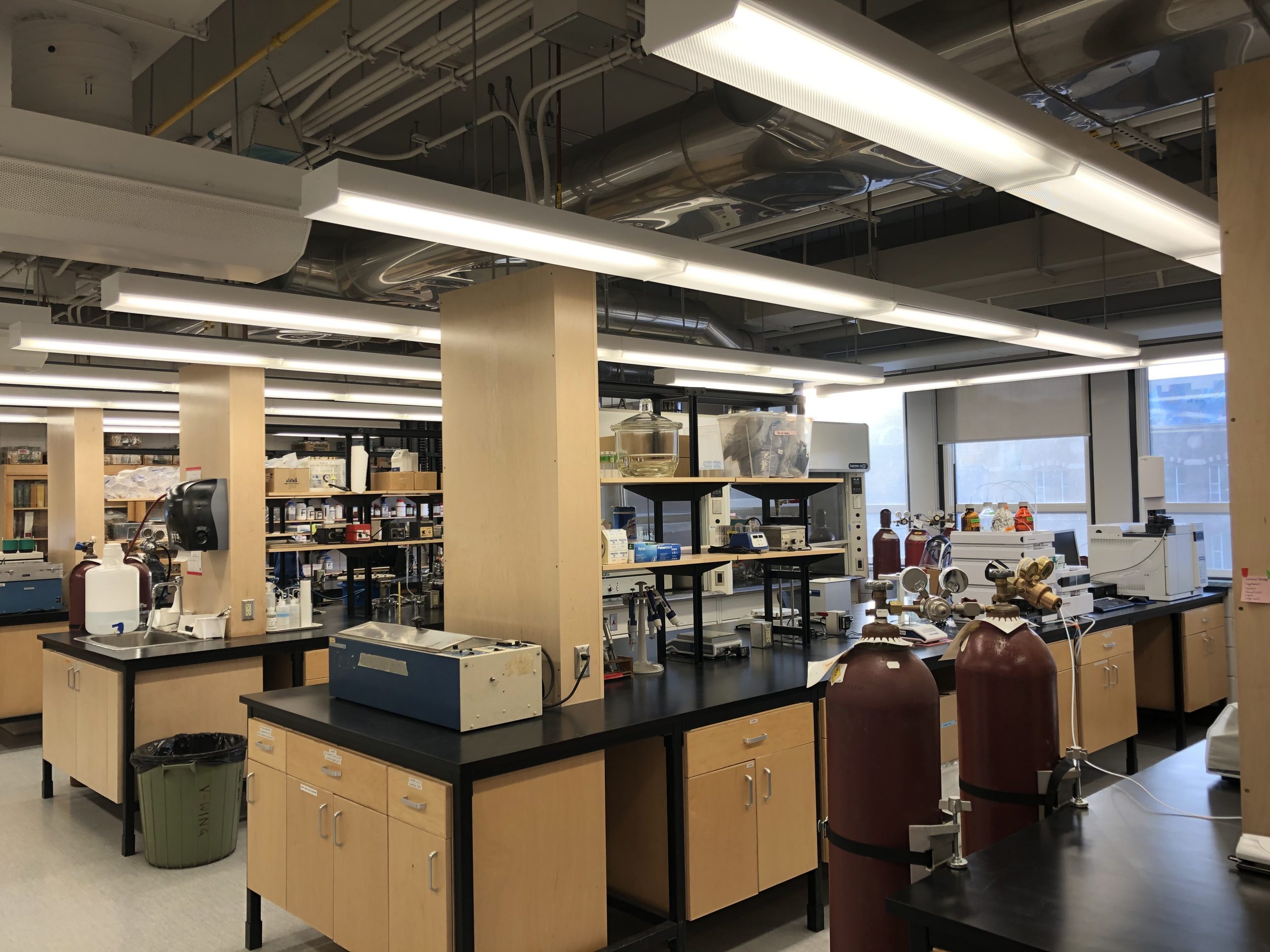
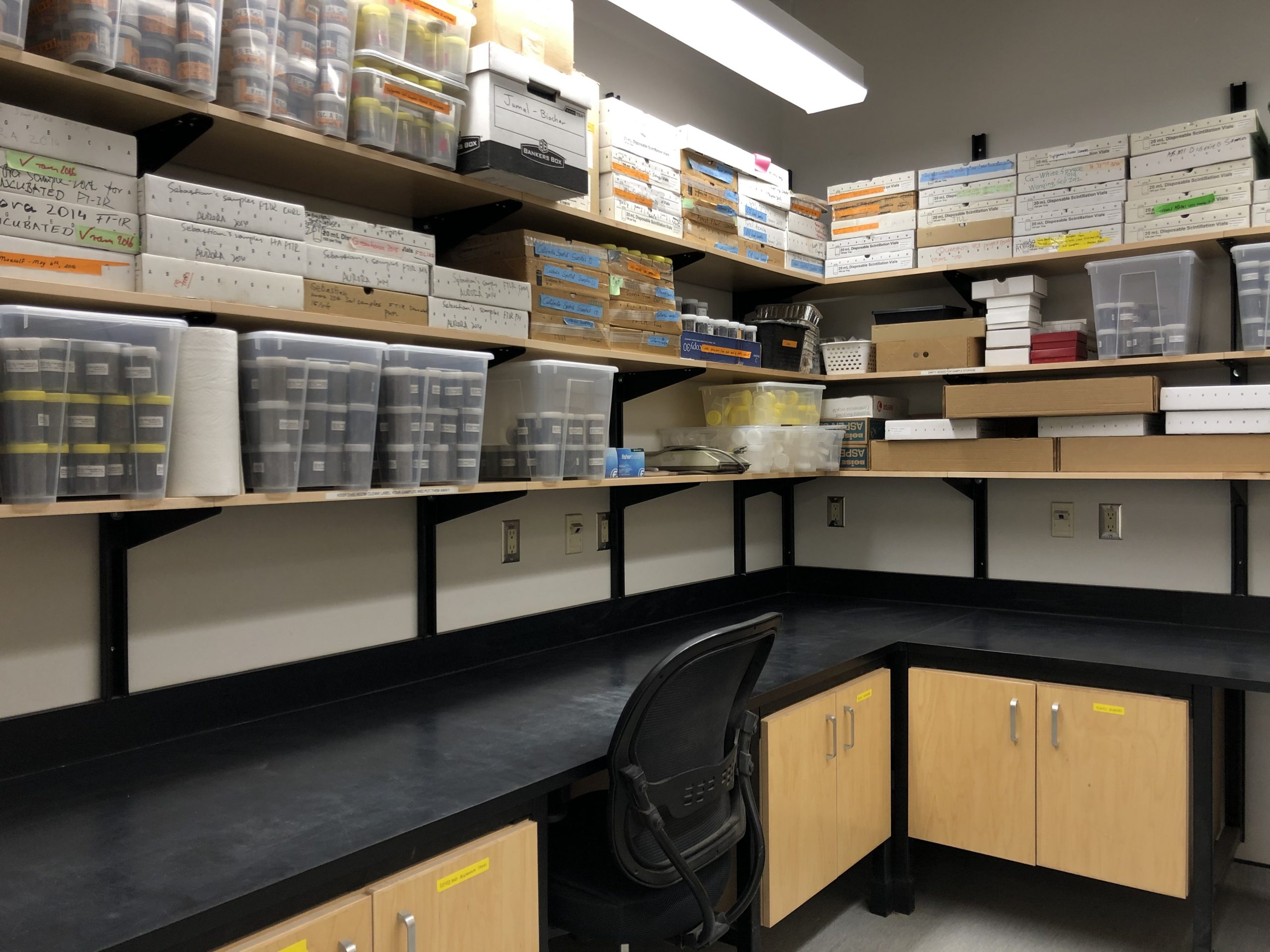
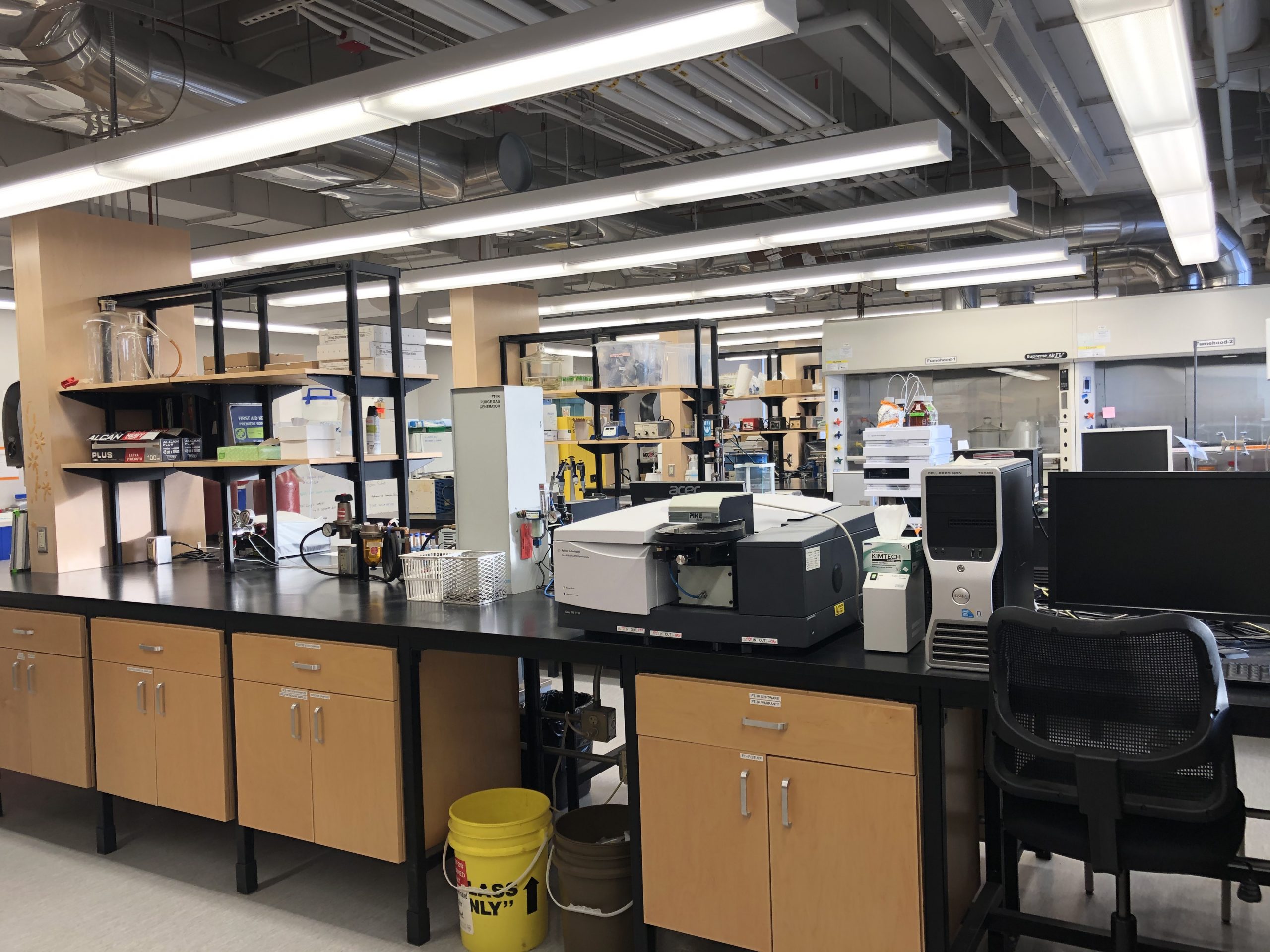
Our lab is located at 4-57 South Academic Building (SAB) and consists of four working benches and a soil processing room. Our standalone soil processing room ensures our working lab remains contaminant-free and clean.
Equipment and Applications
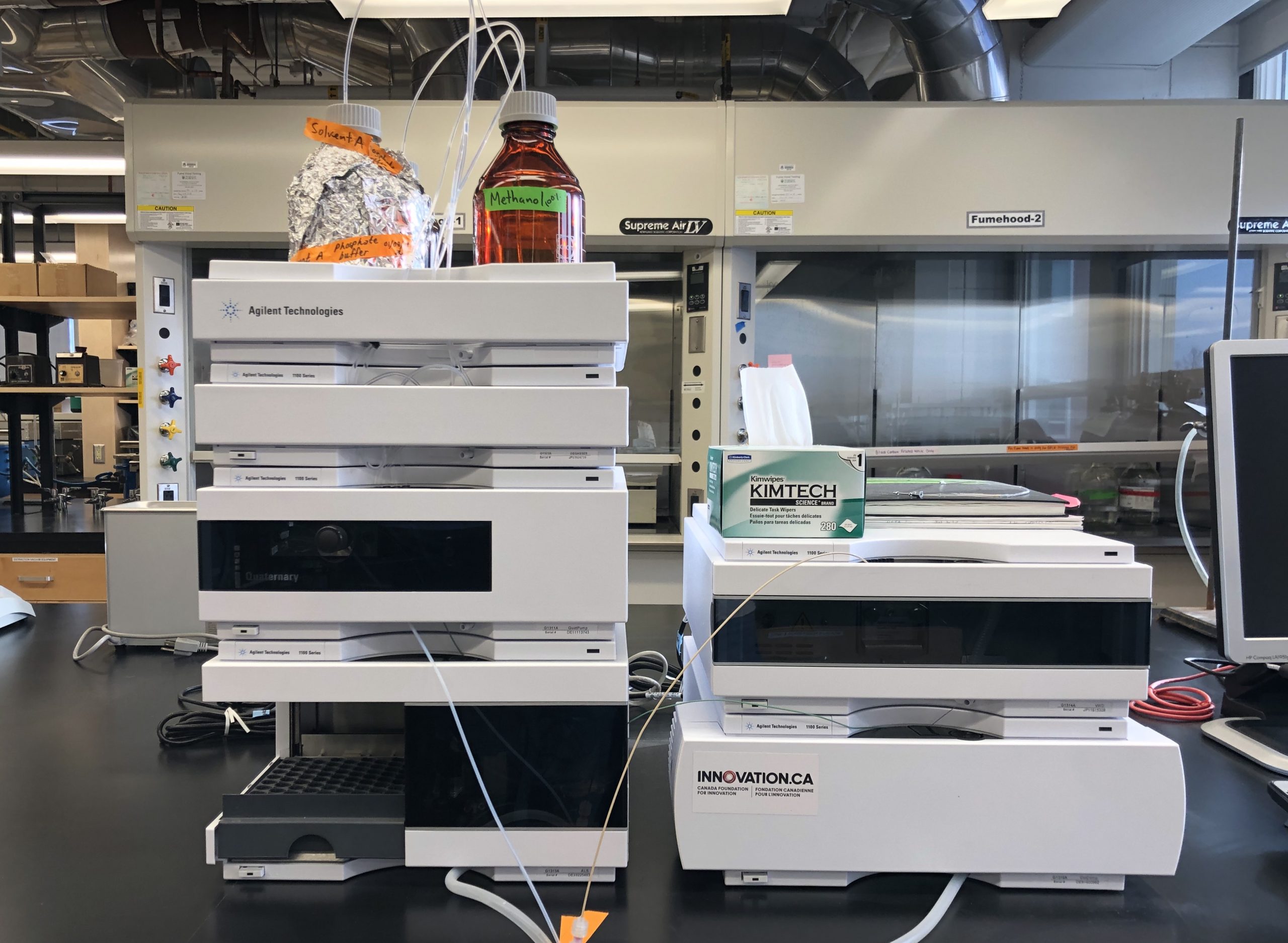
High Performance Liquid Chromatography (HPLC) is frequently used to measure benzene
polycarboxylic acids (BPCA), molecular markers for black carbon.
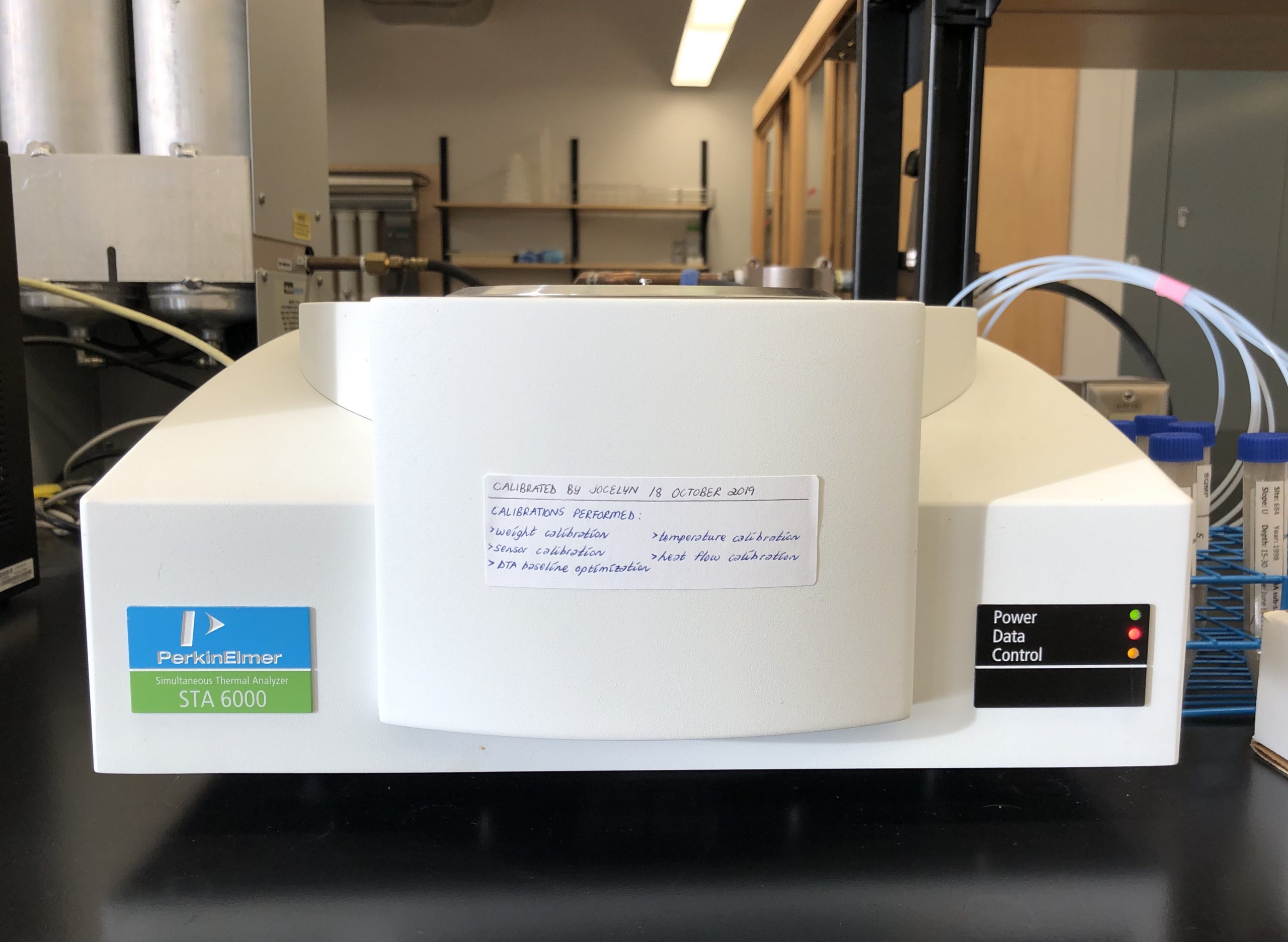
A Simultaneous Thermal Analyser (STA 6000) is used to determine organic matter stability
and content with heat combustion in a high-oxygen environment.
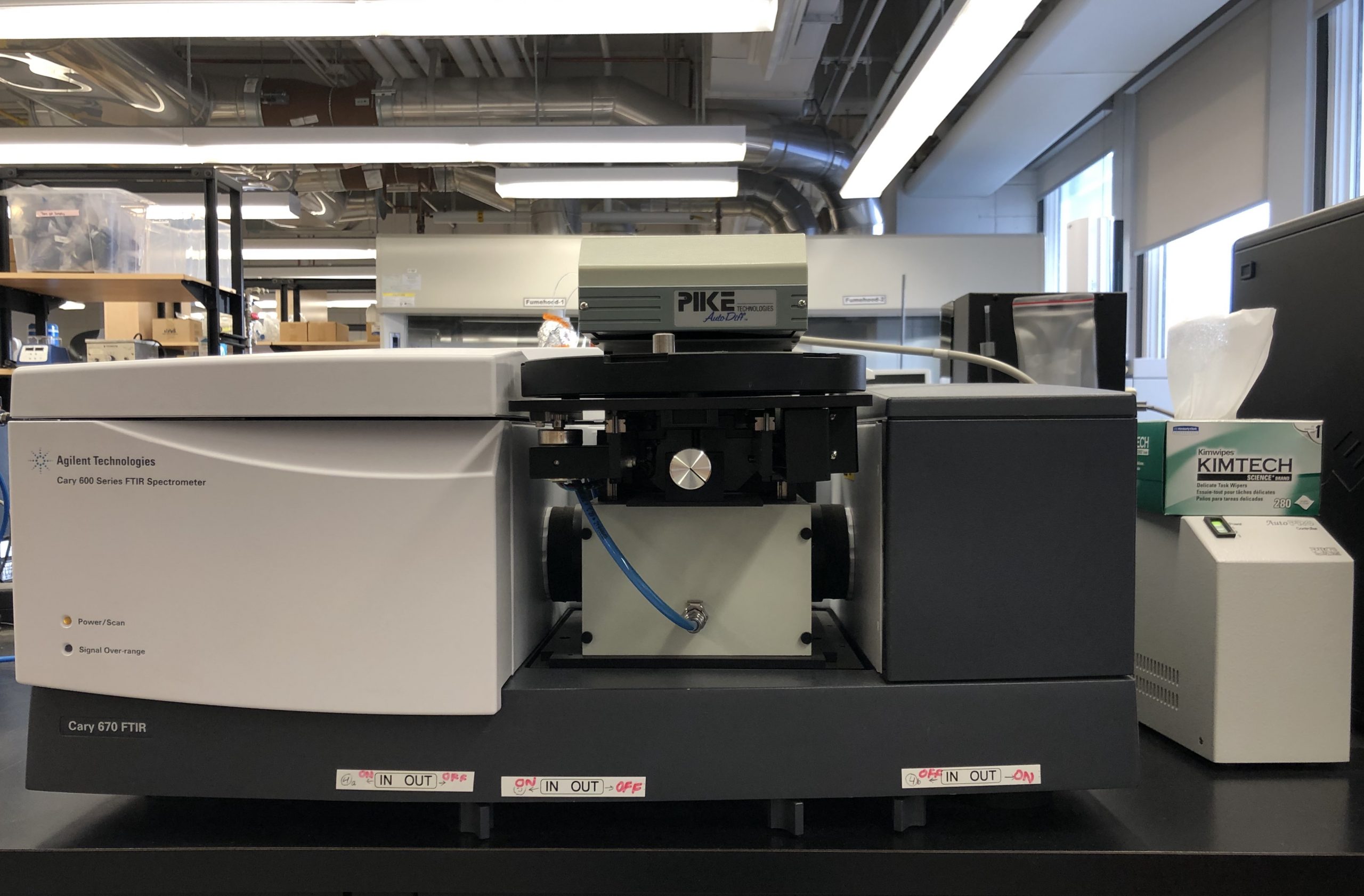
Our lab uses Fourier-transform infrared (FTIR) spectroscopy as a measure of soil organic
matter (SOM) quality.
